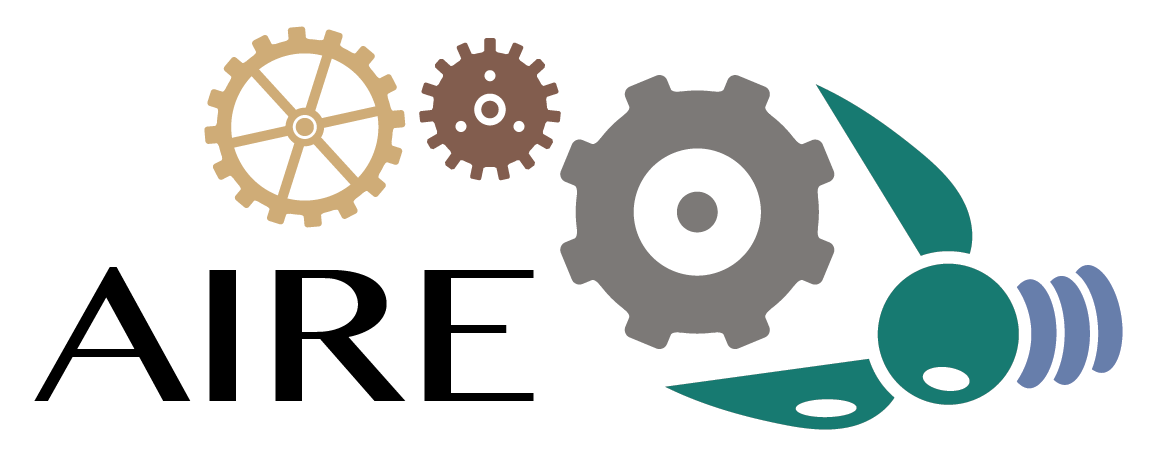
Fifth International Workshop on Artificial Intelligence for Requirements Engineering
@RE'18, Banff, Canada

Program
The workshop will take place on
Session 1: Beyond face value of natural language requirements
9:00 - 10:00
Keynote:
Analyzing Natural-Language Requirements: Industrial needs and scalable solutions
Lionel Briand
[slides]
10:00 - 10:30
Domain Knowledge Discovery Guided by Software Trace Links
Jin L.C. Guo, Natawut Monaikul, Jane Cleland-Huang
[preprint]
10:30 - 11:00
Coffee break
Session 2: Predicting and identifying requirements from natural language texts
11:00 - 12:30
Extraction and Formal Representation of Natural Language Requirements from Breach Reports
Hui Guo, Ozgur Kafali, Munindar Singh
User Feedback from Tweets vs App Store Reviews: An Exploratory Study of Frequency, Timing and Content
Gouri Deshpande, Jon Rokne
[preprint]
Crowd-Informed Goal Models
Georgi M. Kanchev, Pradeep K. Murukunnaiah, Amit K. Chopra
12:30 - 14:00
Lunch
Session 3: Crossing human boundaries and domains with artificial intelligence
14:00 - 15:00
Keynote:
Crowdsourcing Software Development: Silver Bullet or Lead Balloon
Brian Fitzgerald
[slides]
15:00 - 15:30
Identification of Cross-domain Ambiguity with Language Models
Alessio Ferrari, Andrea Esuli, Stefania Gnesi
[preprint]
15:30 - 16:00
Coffee Break
Session 4: Unleashing artificial intelligence on goal and state models
16:00 - 17:30
Validating Goal Models via Bayesian Networks
Davide Dell'Anna, Fabiano Dalpiaz, Mehdi Dastani
[preprint]
Finding Component State Transition Model Elements using Neural Networks: An Empirical Study
Kaushik Madala, Shraddha Piparia, Hyunsook Do, Renee Bryce
Wrap-Up and Discussion
(Each regular talk will be 20 minutes + discussion)
Keynotes
Keynote 1: Lionel Briand
Title: Analyzing Natural-Language Requirements: Industrial needs and scalable solutions

Abstract: While often complemented by models at various degrees of formality and detail, natural-language requirements remain pervasive across all industry sectors. Decades of research on formal methods and model-based development have not made a noticeable dent in this practice, and I do not expect the situation to change in the foreseeable future. The prevalence of natural-language requirements is largely due to the flexibility and understandability of natural language, especially when stakeholders with diverse backgrounds are involved. External factors, such as laws and regulations, further contribute to the popularity of natural language in requirements specifications. Despite inherent challenges and drawbacks associated with natural language, it is imperative to provide scalable support for requirements analysts to be able to handle hundreds and sometimes thousands of natural-language statements. A first question here is to understand what type of support the analysts need. This varies across domains or even specific contexts. The examples I will present include checking in a practical manner the conformance of requirements with pre-defined sentence templates, extracting glossary terms and domain models from requirements, analyzing the impact of requirements changes, and deriving system test cases from requirements. I will report on results obtained from research projects in collaboration with industry, and reflect on our experience at the Software Verification and Validation group, SnT Centre, University of Luxembourg. Providing scalable support for handling natural-language requirements entails, to various degrees, the use of natural-language processing, as well as constraint solving, information retrieval and machine learning. Such research endeavours are therefore fundamentally multidisciplinary. Unfortunately, and probably in part because of such multidisciplinarity, academic research on the management and analysis of natural-language requirements is limited and comparatively dwarfed by the more formal approaches to requirements engineering.
About the speaker: Lionel C. Briand is professor in software verification and validation at the SnT centre for Security, Reliability, and Trust, University of Luxembourg, where he is also the vice-director of the centre. He is currently running multiple collaborative research projects with companies in the automotive, satellite, financial, and legal domains. Lionel has held various engineering, academic, and leading positions in five other countries before that. He was one of the founders of the ICST conference (IEEE Int. Conf. on Software Testing, Verification, and Validation, a CORE A event) and its first general chair. He was also the EiC of Empirical Software Engineering (Springer) for a long time and led the journal to the top tier of the very best publication venues in software engineering. Lionel was elevated to the grade of IEEE Fellow in 2010 for his work on the testing of object-oriented systems. He was granted the IEEE Computer Society Harlan Mills award and the IEEE Reliability Society engineer-of-the-year award for his work on model-based verification and testing, respectively in 2012 and 2013. He received an ERC Advanced grant in 2016 – on the topic of modelling and testing cyber-physical systems – which is the most prestigious individual research grant in the European Union. His research interests include: software testing and verification, model-driven software development, search-based software engineering, and empirical software engineering.
Keynote 2: Brian Fitzgerald
Title: Crowdsourcing Software Development: Silver Bullet or Lead Balloon

Abstract: Crowdsourcing is emerging as an alternative outsourcing strategy which is gaining increasing attention in the software engineering community. However, crowdsourcing software development involves complex tasks which differ significantly from the micro-tasks that can be found on crowdsourcing platforms such as Amazon Mechanical Turk; the latter are much shorter in duration, and typically very simple and do not involve any task interdependencies. To achieve the potential benefits of crowdsourcing in the software development context, companies need to understand how this strategy works, what challenges arise, and what factors might affect crowd participation. Research to date on crowdsourcing software development has tended to focus on the “crowd” or the technical platform, with little research from the perspective of the customer who is seeking to leverage the crowdsourcing development model. The findings from an in-depth case study of crowd-sourcing software development in a Fortune 500 company are augmented with an analysis of over 13,000 crowdsourcing competitions over a ten-year period on the Topcoder crowdsourcing platform, one of the most popular platforms for software development, and are drawn on to evaluate the effectiveness of crowdsourcing in a software development context.
About the speaker: Brian Fitzgerald is Director of Lero – the Irish Software Research Centre. He also holds an endowed professorship, the Krehbiel Chair in Innovation in Business & Technology, at the University of Limerick (UL), and served as Vice President Research at UL from 2008–2011. He holds a PhD from the University of London and his research interests lie primarily in software development, encompassing open source and inner source, crowdsourcing software development, agile and lean software development, and global software development. His publications include 15 books, and over 150 peer-reviewed articles in the leading international journals and conferences in both the Information Systems and Software Engineering fields, including MIS Quarterly (MISQ), Information Systems Research (ISR), IEEE Transactions on Software Engineering (TSE) and ACM Transactions on Software Engineering Methodology (TOSEM). Prior to taking up an academic position, he worked in the software industry for about 12 years, in a variety of sectors (including finance, telecommunications, manufacturing, bespoke software development) in a number of countries (Ireland, Belgium, Germany). He has been very successful in winning competitive research grants from a variety of funding agencies. Overall, these projects have received total funding of almost €100 million, with over €13 million received directly as Principal Investigator (PI).
Accepted Papers
Domain Knowledge Discovery Guided by Software Trace Links
by Jin L.C. Guo, Natawut Monaikul and Jane Cleland-Huang
Identification of Cross-domain Ambiguity with Language Models
by Alessio Ferrari, Andrea Esuli and Stefania Gnesi
Validating Goal Models via Bayesian Networks
by Davide Dell'Anna, Fabiano Dalpiaz and Mehdi Dastani
Crowd-Informed Goal Models
by Georgi M. Kanchev, Pradeep K. Murukunnaiah and Amit K. Chopra
Finding Component State Transition Model Elements using Neural Networks: An Empirical Study
by Kaushik Madala, Shraddha Piparia, Hyunsook Do and Renee Bryce
Extraction and Formal Representation of Natural Language Requirements from Breach Reports
by Hui Guo, Ozgur Kafali and Munindar Singh
ELICA: An Automated Tool for Dynamic Extraction of Requirements Relevant Information
by Zahra Shakeri, Vincenzo Gervasi, Didar Zowghi and Ken Barker
User Feedback from Tweets vs App Store Reviews: An Exploratory Study of Frequency, Timing and Content
by Gouri Deshpande and Jon Rokne